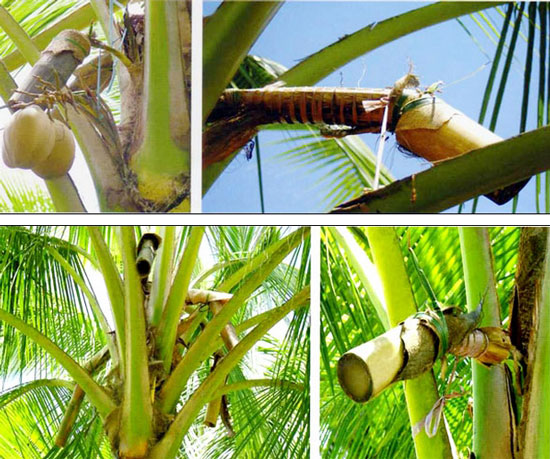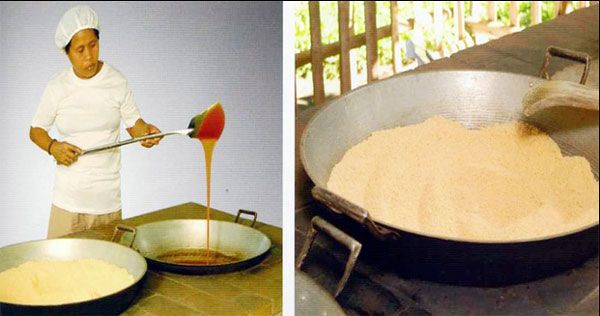The coco sugar is healthy sugar with low glycemic index of 35 or classified as Low Glycemic Index Food which is suitable for diabetics. Other sugars (brown sugar, white sugar, turbinado sugar, muscovado sugar, demarara sugar, molasses, sucanat sugar, etc.) have a high glycemic index rating between 65 to 100 Gi per serving which makes them unfriendly to diabetics.
Most sugars or sweeteners available in the market (artificial and synthetic), chemical-based sweeteners contain no nutrients. But coco sugar is rich in vitamins, minerals and amino acids. It is nutrient-dense food, which means a food that contains a large amount of nutrients.
The coco sugar comes from a the coconut sap/nectar produced from the coconut flower.


- https://www.affordablecebu.com/

(photo: coconutsugarphilippines.com)
This photo above shows how a coconut sap is produced/collected through the use of a bamboo tube tied in the half-cutted coconut flower. The coconut sap translates as "lambanog" in tagalog and "tuba" in cebuano/bisaya.

(photo: coconutsugarphilippines.com)
This photo above shows how the coconut sap is caramelized and crystallized into coconut sugar.
Coconut sugar is a natural product with simple processing, without chemicals and additives. It can be used in different beverages concoctions like coffee, tea, herbal and fuit juices; as confectionary products in pastries, cakes and native delicacies.
The Department of Education (DepEd) encourages all regional directors (RDs) and schools division/city superintendents (SDSs) and administrators to give full support to the advocacy and the use of coco sugar in various affairs such as meetings/conferences/conventions, and trainings/seminars and workshops.
The regional/division health and nutrition personnel are also encouraged to include information on the benefits of coconut sap sugar during their health talks and to encourage the schools to use the coco sugar in food preparation.